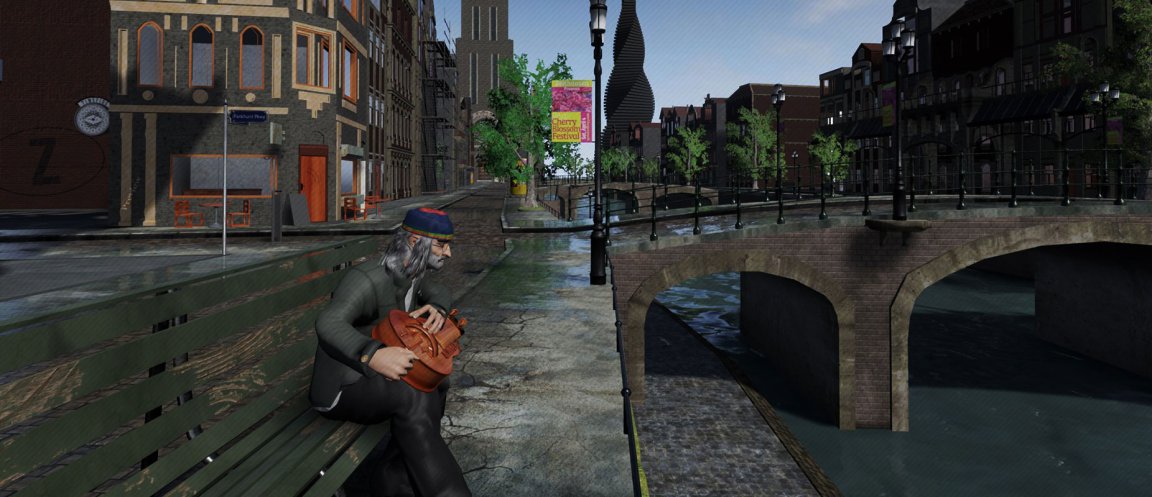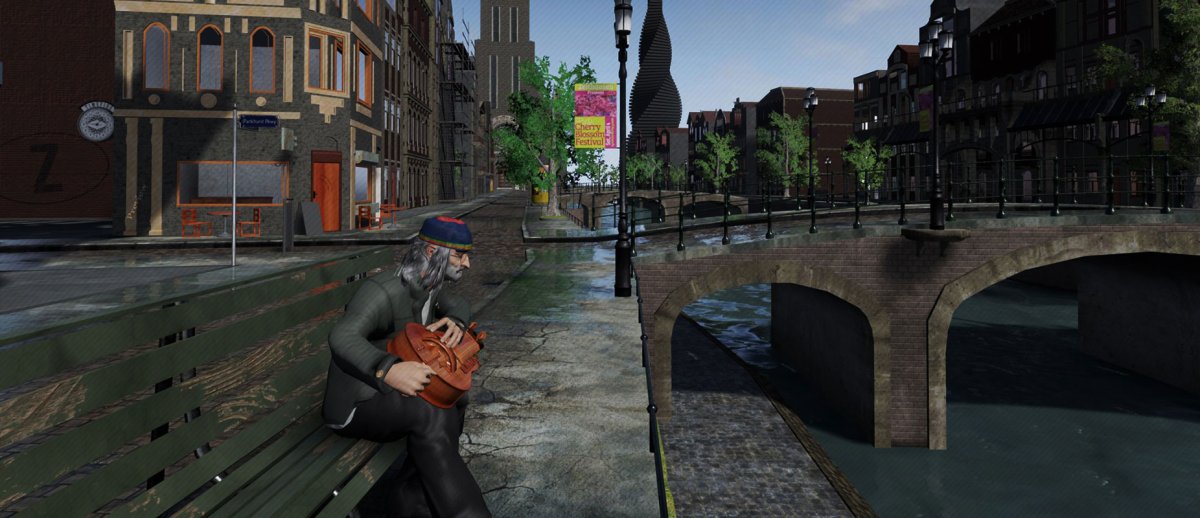
Timefire VR, an Arizona tech company, recently announced they were building an advanced virtual reality city called Hypatia. Hypatia will be an immersive social environment that will focus on providing a cultural and educational experience. The name, according to the company’s website has ancient origins:
“Hypatia (hy-PAY-sh(ee)ə; Greek) (born c. AD 350 – 370; died 415); First known woman intellectual, mathematician, philosopher, astronomer. Reborn 2016 as the first city in Virtual Reality.”

Not Just a City
The team at Timefire has been working on the extensive virtual city, what they call their “bold experiment” for the past year. They assert that they grew up playing with Legos (then graduating to Minecraft) and wanted to put their building skills to the test in VR. From the short teaser, Hypatia seems to be filled with realistic places to explore as well as remarkable fantasy elements.
The team has high expectations for the city. The virtual world won’t just be a place to hang out and stare at pretty cobblestone streets. Their website states, “this new world will be collaborative, social, educational, and fun. Find a concert, stage play, shopping, or read a holographic book by the canal. From theaters and museums to exotic hidden surprises, Hypatia will alight your senses.”
Timefire employees believe they are creating more than just a game- they’re offering virtual culture:
“In Hypatia, people will find an environment for exploring and creating all aspects of our potential. This ranges from music, art, education, mentoring, crafting, and exploration. In this virtual city we will not only be the creators but the curators of our emerging world of digital virtual art. Community, camaraderie, and creativity are imperative to Hypatia. We are relying on you, the players, to create the vast dynamics of this city’s culture.”

High Hopes
All of this comes at a price, of course. Although the company hasn’t named one yet, in a blog post, they did state, “we are entering an age where most anyone will be able to virtually participate with nearly any activity humans can dream of. The cost of entry is not free or cheap. But it’s never been free to enter the theater, eat a great meal, or travel the world. The difference is going to be that we are removing the barriers that had only allowed those of privilege to embark on humanity’s greatest adventures.”
The entertainment value of the virtual world is evident. In addition, though, Timefire hopes to offer Hypatia as a tool to foster a new age of self-education.
“We are the spearhead of crowd-sourced teaching and learning. We predict that the United States must focus its attention on raising the intelligence and cognitive abilities of roughly 30% of our working age population in the next 10-15 years in order to remain globally competitive. Our current education system may not be up to this herculean task.
“We are the campus of the future where students will, in-effect, be attending prep-school for their university experience. In the space of Virtual Reality, humanity is going to build the cities and campuses of the future. Virtual Reality will be a place where culture, history, science, and community come alive.”
Not only will Hypatia offer education and culture, it will “restore the social fabric of community,” according to the company’s website.
“Our local towns, cities, and states often cut off our exposure to the kind of communication and thinking that are driving job creation which propels humanity forward. Like it or not, society evolves and either we go with the flow or we find ourselves trampled underfoot by the march of progress.”
Will this virtual city live up to all the grandiose goals of its development team? We’ll have to wait to find out until later this year.